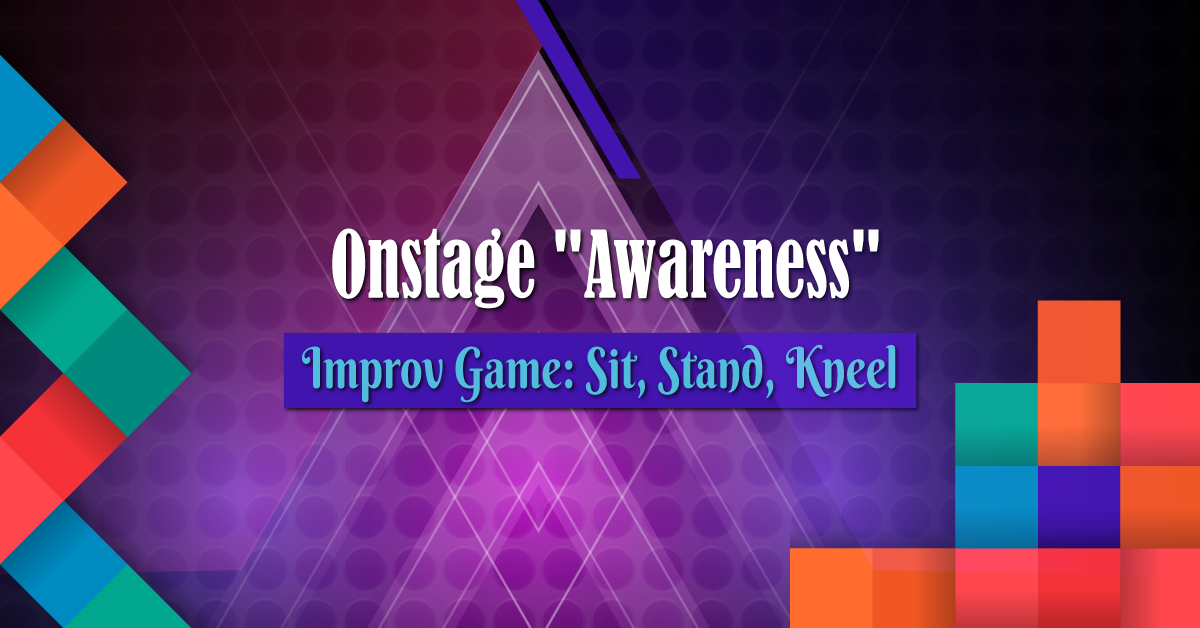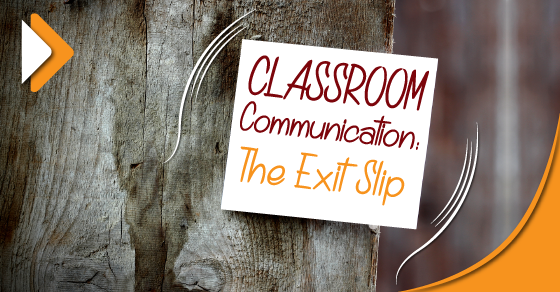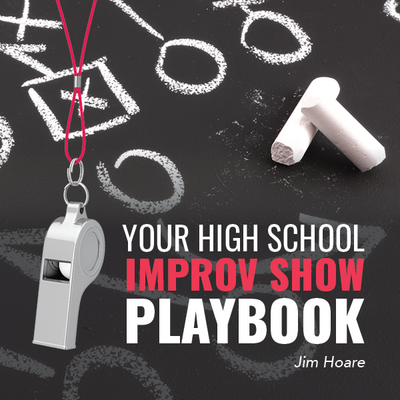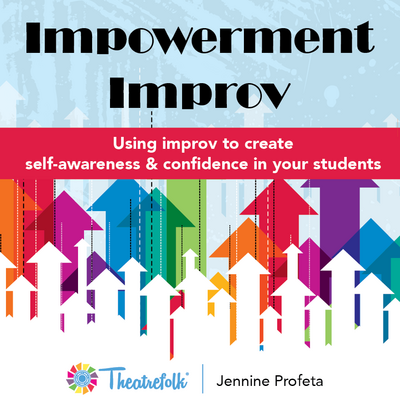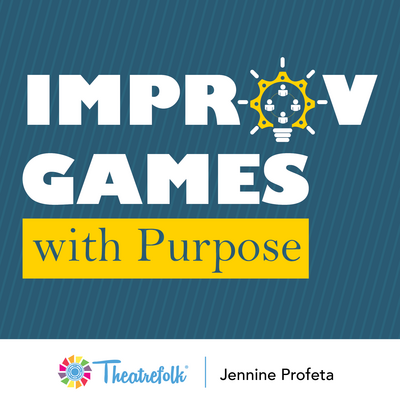Top Ten Tips for Teaching Improv
Guest blogger Jennine Profeta is a Second City performer and theatre educator, as well the instructor of the Drama Teacher Academy course Yes, And… How to Teach Improv. She shares her Top Ten Tips for Teaching Improv with us here!
Tip #1 – There are no wrong answers.
There are no wrong offers. Students are very reticent sometimes to put something on the table. They’re scared that they’re not going to say the perfect thing. Don’t worry about perfect. Just put something out there and know that things are going to spin out from it.
Tip #2 – Improv is overwhelming.
You can just choose from anything in the world and students are afraid that they’re not going to say that perfect thing, that they’re not going to be funny, or they’re not going to be able to contribute anything. We are aware of this and we’re going to address this.
Tip #3 – Improv is a team sport.
We are in it to win it together. We’re all friends, we all support each other, we all help each other out. When we do shows, a lot of us have adopted this thing called “I got your back” so we go around and we tap each other on the back and say, “I got your back” because, again, it’s a reminder that it’s a team sport.
Tip #4 – Keep physically open.
Students tend to cross their arms, cross their legs. I know I stand in a crossed arm position because it’s comfortable sometimes, but it’s also defensive and it shuts us down. You’re actually not really able to listen as well when your body is crossed. Get them to open up – uncross those arms, uncross those legs. Sometimes you have to remind them several times throughout a class.
Tip #5 – Listening.
It’s all about communication and collaboration, so we need to listen to each other. All acting is about reacting and improv is this in the purest form. You have to be able to listen and to react to your partner.
Tip #6 – Focus on the wins and the challenges.
This is an important tip when giving feedback – as opposed to focusing on what is right and wrong. Just focus on the wins. There is no wrong in improv as long as we’re listening to each other and supporting each other.
Tip #7 – Emotion is your friend!
I like that say that, in life, it sucks to be grieving. It sucks to be sad, to be terrified. But in the classroom, it’s a really fun thing to play with. It can inject a lot of fun and energy into your scenes. So, the more that they can embrace their emotions and just riff off of them, the more they’re going to have in their toolbox.
Tip #8 – Funny, funny, funny.
That should be a happy by-product of what happens. Not that we’re standing on the sidelines, thinking about the perfect joke. Improv is all about humor. We just want to start communicating our ideas, working on offers, listening, and accept the fact that the laughs are going to come as a result of this thing that we’re building together.
Tip #9 – Avoid questions.
We want to avoid questions in our scene work. Some students don’t want to commit to the scene or again they think that whatever they have to say is not good enough. So instead, they go into the scene and go, “So, what are you doing? What’s your name? Why are we here?” I stop and say, “Okay, let’s reframe it. Instead of a question, let’s make it a statement.” Say, “We are at…” and then you’ll watch them, like, “Uh… Disneyland.” Yes, perfect! That’s great.
Tip #10 – Have fun.
Every time I hit the stage, I like to play and have fun. In improv, there are often rules and structures that are introduced in a lot of the exercises and games that we play. It doesn’t mean that it’s not fun; those are there to help us have fun, to hone in on the points that we want to hit so that we can have a great time and just laugh.
Want to hear more tips from Jennine?
- Listen to the Theatrefolk Podcast Top Ten Tips for Teaching Improv.
- Check out Jennine’s Drama Teacher Academy course [Yes, And… How to Teach Improv.](https://www.theatrefolk.com/dtacourses/yes-and-how-to-teach-improv)_
Related Articles
Your High School Improv Show Playbook
by Jim Hoare
Have you wondered how to take improv to the next level with your students? Your High School Improv Show Playbook is the "how-to" guide for you! Empower students to present their first improv show that is fun and entertaining for all.
Impowerment Improv
by Jennine Profeta
Using improv to create self-awareness & confidence in your students
Improv Games with Purpose
by Jennine Profeta
Improv games including feedback suggestions and questions, game variations, teaching tips, side coaching tips, entry prompts, exit slip questions, and more!


